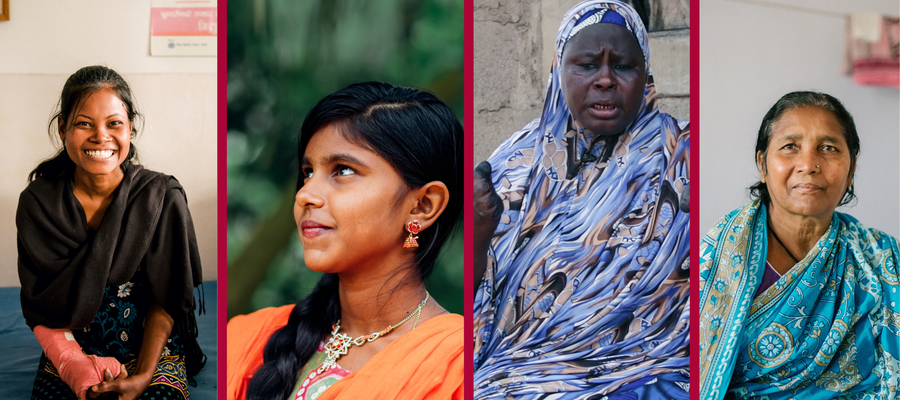Advocacy News: The voices of women affected by leprosy have been heard in new and exciting ways

In December 2020, the UN hosted its major disability rights conference (COSP13). At this conference, The Leprosy Mission and Disabled Peoples’ International (DPI) hosted a side event that considered the challenges women affected by leprosy face in accessing their rights. It’s the first time a meeting that looks explicitly at the rights of women affected by leprosy has been hosted at the CRPD Conference (COSP). This is what those women had to say.
Lilibeth Evarestus, a lawyer in Nigeria
Lilibeth is a woman who was diagnosed with leprosy when she was a teenager. At the event, Lilibeth talked about the challenges she’s faced as a woman affected by leprosy, including the multiple forms of discrimination she’s faced in her studies and in her career. She talked about how it is hard to stand up in a court as a woman, even more so when you are a woman with disabilities caused by leprosy.
She had some important messages for governments, looking especially at the CRPD. Here’s one crucial part of what she said:
“I appeal to governments at all levels to provide excellent standards of accessible health facilities that women can access without difficulty. Many of us are old, with little education, and may not withstand the long or rigorous travel or administrative protocols that are too often needed to access healthcare. Good standards of living and good health cannot exist without one another, they are interwoven.”
Maya Ranaware, representing DPI and the Association of Persons Affected by Leprosy (APAL) in India
Maya spoke (through wonderful translation by Jayashree) about the hidden discrimination that women affected by leprosy may face. She spoke about issues that will be familiar in many cultures across the world, including the fact that women face the double burden of household work and paid work, whilst also touching on the fact that many women affected by leprosy in India may lack rights to family property.
She also spoke about how women with disabilities may then face yet further discrimination, as disability can be seen in some parts of the world as a punishment for sins of the past life. Even within that, leprosy is a ‘neglected disability’ and isn’t always represented at disability platforms. Lastly, she touched on the impact of Covid-19:
“In the Covid-19 situation, we have seen all people losing livelihoods, and people affected by leprosy, especially women, will be at the bottom of the pyramid when it comes to getting their livelihoods back. Others will always get more attention and thus, Covid-19 has made it more difficult for women affected by leprosy to access livelihood opportunities.”
Jayashree Kunju, CEO in India
Jayashree, with her customary compassion, spoke about the experiences of a young woman she knows who has experienced leprosy. She then spoke briefly of her own experience. Like Maya and Lilibeth, Jayashree spoke about the intersecting discrimination facing many women affected by leprosy. Even before leprosy is taken into account, women may struggle to thrive in their communities. Once you add the age-old stigma surrounding leprosy to this struggle, life can become “unbearable”.
“I do request we look at the disease ‘leprosy’ as not just caused by bacteria, but one perpetuated by the State’s neglect. That may include lack of nutrition, lack of education and awareness, and a lack of sensitising communities to the complex manifestation of the disease.”
Each of these women brought wonderful, valuable, and unique perspectives to the table at the UN. The power of their words will live on as long as we continue to echo them and respond to them.
At the event we also heard from the UN Special Rapporteur on the rights of persons affected by leprosy, we heard from the head of IDEA (an organisation of persons affected by leprosy) and from UNDP in Lao PDR.
If you would like to catch up on the event, you can do so through the recording on YouTube.